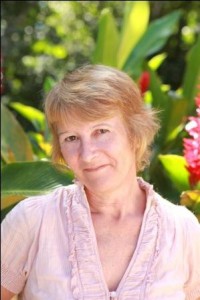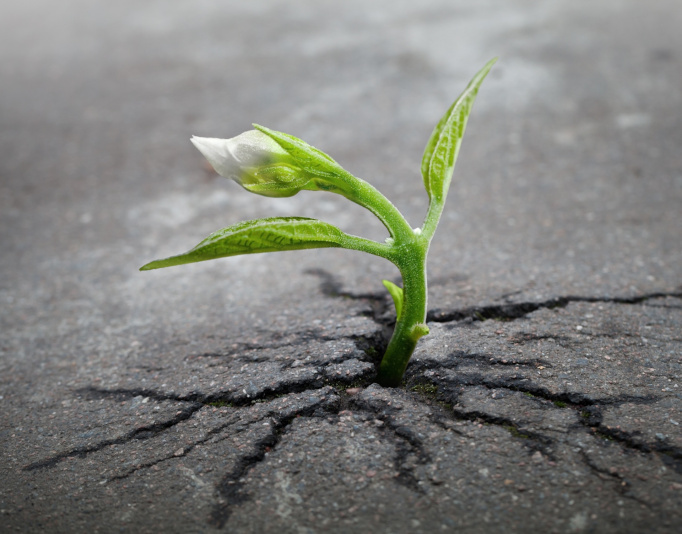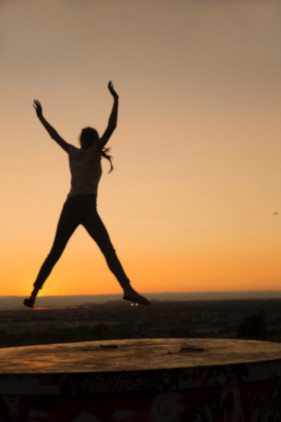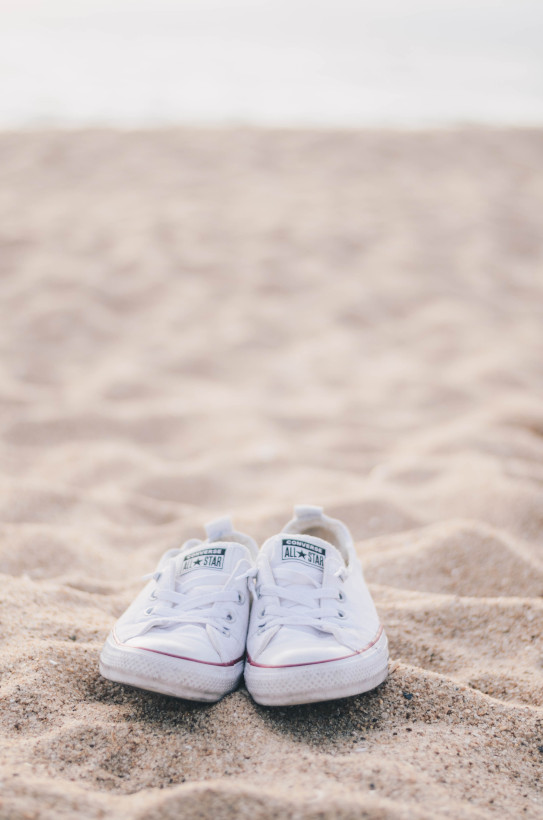Lindsay De Feliz had it all! Marriage, a high paying job in Marketing in London, owned her own house, a cottage in the country, a sports car, and designer clothes. At some point, she had a nagging feeling something was missing in her life. Unable to do what she wanted or go where she wanted because she had to conform to the ‘norms’ and be a good wife and good worker. The only way for her to pursue her dream of being a scuba diving instructor and have the life she really wanted, was to walk away from it all.
In this interview, she talks about her journey and overcoming hardships she faced as a British expat living in the Dominican Republic. Despite being shot, fighting against political corruption and losing everything, Lindsay’s love for the culture and people, living her passion is what has kept her loyal to her new adopted country.
Meet Lindsay with a special appearance from Hector (her husband’s cousin) as he’s mopping the floors in the background:
Antonia: Lindsay, you are a well known blogger with your blog “What About Your Saucepans?” You recently published your book with the same title. We will get to the title in a moment, but can you tell us what inspired you to write this book?
Lindsay: I was inspired because having left the UK in 2001; I used to write long emails to big group of friends back in the UK once a month. After two and three years, people would say, “You really should write a book.” So, the idea was in the back of my mind, but I’m not really a writer. I would call myself more of a storyteller. I would never win any prize for fabulous writing, but I can tell people the stories and make them feel like they are traveling with me on the journey.
I was shot in 2006 and I wrote down what happened after the shooting because there was a big memory gap. I started talking to people, asking them what happened and “when did you come into the story?” and “what happened to my jeans that disappeared after the shooting?” So, that’s a chapter in the book and later on the rest of it built around it.
Antonia: So, if we go back to 2001, you had everything everyone wants to have a successful life. You let all that go. What made you make this decision and what brought you to the Dominican?
Lindsay: It wasn’t a quick decision. I knew I had what everyone wanted. I was earning a quarter of a million dollars a year, maybe half a million with bonuses. I had so much money I didn’t know what to do with it. To have my hair cut every six weeks was like 700 dollars, it was peanuts. I should have been happy but, when I woke up in the morning, I wasn’t springing out of bed. The only time I was really happy was when I was scuba diving. Not just the actual event of diving under the water, but the freedom. No make-up, it didn’t matter what clothes I wore. I didn’t have to make sure that the emeralds went with the skirt and the nails went with the shoes. I could just get up and go and be natural. I thought,
“If this is what I love doing, what is the rule to say I can’t do this all the time?”
So, I just wanted to do something with my life. I never do things by halves. I could have just said to my husband, “I’m leaving for six months” but, I didn’t. I cut off all ties and left.
Antonia: That’s amazing! Lindsay, how did your friends and family respond when you first announced your decision? I know this is where the title of the book comes in.
Lindsay: Well, my friends were behind me because they knew I wasn’t happy. They knew before I knew. They could see how vibrant I was before I got myself in this “I want to do something with my life state.” So, they were all for it.
I had to tell my parents and was expecting major torment because divorce doesn’t happen in my family. You don’t leave your husband when you do things like that. My mother just looked at me and said, “what about your saucepans?” They bought me these beautiful pans for Christmas and my birthday the previous year. They were the last thing from my mind. I was taking my life in a suitcase and there wasn’t room for ten beautiful stainless steel saucepans. They were very concerned but, supportive.
Antonia: What were your initial feelings upon your arrival in DR? Did you experience a cultural shock?
Lindsay: The shock was total euphoria that lasted for years.
The shock of freedom!
You could sit on a motor bike without a helmet, I had never been on a motor bike before and that was the way of getting around. I could smoke, I’m a smoker, I could smoke where ever I wanted, I could wear whatever I wanted, I was going out more than I had in years, dancing in clubs. It was just…people dancing on buses. They were dancing in the street, in the supermarket. There was music everywhere. It was just total FUN! Everyone was happy. No one would sit there and talk about, “Oh, it takes such a long time to get across London,” “Have you seen the price of this,” or “How much money has your house gone up by.” It was just fun.
Antonia: What would you say was the biggest difference in the way of life between the UK and the DR? Did you experience any frustrations at the beginning?
Lindsay: The thing that got to me first was the stealing. People would just take things from you. To me, that was stealing. Then, people would explain, “It’s just that you’ve got the money and they haven’t. So, what’s the problem?” That was very hard to get your head around it. Whether it’d be the children taking food from your fridge or whether it’d be someone coming to your house, going to the bathroom and coming out with ten rolls of toilet paper shoved up their t-shirts. I had some beautiful Timberland boots which I had brought with me. I saw a little Haitian boy wearing my boots. I asked him, “Why on earth have you got my boots on for?” He started to take them off and told me that one of my step sons had given them to him. He had no shoes. You suddenly start thinking, “it’s a pair of boots! You wear them once a year if you decide to go trekking. This kid has nothing. Let him have the boots.”
Just because things are done differently in a different country, it doesn’t make it wrong.
We’ve been brought up in a certain way and that’s the way we do things. There’s just one quick example which actually isn’t in the book. When we got married in England in church, the pastor took out his handkerchief before he married us and blew his nose. He put the handkerchief back in his trouser pocket. My Dominican husband looked at me and said in Spanish, “how on earth can he stand there with a pocket full of snot? That is absolutely repulsive! You should do it between your fingers and through it on the ground. At least it is not in your pocket.” Which of course to us is equally repulsive. It’s just a different way of doing things.
Antonia: If we go forward to a few years later, Lindsay, you have already touched on this a little; you experienced a more terrifying event. A burglary, the shooting that you spoke about. What happened?
Lindsay: I was alone in the house, my husband was working. I went out as I always did every Saturday night to karaoke, I used to enjoy singing. I just wasn’t in the mood that night for some reason. So, I drove home and stopped outside the big iron gates that villa where we lived had. There were two guys standing outside the gates. We always had people there so, that wasn’t unusual. I walked past them, went to open the gates and noticed that the padlock was on the ground, which I thought was strange. I went to pick up the padlock, opened the gate, turned around to close the gate behind me and then I was going to tell the guys outside that my husband wasn’t there. One just looked at the other and said, “Dale,” which means “give it to her” in Spanish. I thought they’ve obviously brought something for me or for my husband. The other one just lifted up his t-shirt, pulled out a gun, probably from about a foot or two away and shot me.
Antonia: When you were shot, what was the first thing that went through your mind?
Lindsay: RUN! I saw a flash of light and I heard a really loud bang. I thought, “Bloody hell, they’re shooting at me!” I didn’t know I had actually been shot. I ran to the back of the house. My dogs came running out and they started shooting at the dogs. They ran out of bullets, the dogs started to attack them so, they ran off. I tried to get up from the back of the house and I couldn’t stand up. I thought I must have been shot but, I had no idea where. My face was blotting up; my head literally went to where my shoulders are. I was shot in the throat and the bullet went through lung, so the air escaped from my lung. So, the top part of my body filled up with air. I just… I knew I was dead. I was incredibly calm. I didn’t panic. I just lay there and I spoke out loud and I said to my father, who had died a year before, “Hi dad, I’m coming to see you.” I knew I was dead and I said good bye to my mother, good bye to my husband. I just said, again out loud, “God, please, if you can, give me a little more time. I’m not very old; I would like a bit more time, please.” As I was speaking out loud, this guy inside our house, he had been staying with us, had gone to the toilet. He wasn’t worried about gun shots because they were usual, you’d hear them. As he was standing there having a pee, he heard me talking in Spanish outside the bathroom window. He came out and found me. From there, all hell broke loose. Hundreds of people around me, yelling,” Lindsay’s dead.” I couldn’t open my eyes by now, so, I was trying to tell them I’m not dead. They tried to get me in the car but, nobody could drive. In the end, I was on the back of a motor bike and eventually I was in a hospital in the local town where they did a tracheotomy. They didn’t do it properly and cut straight through my vocal cords.
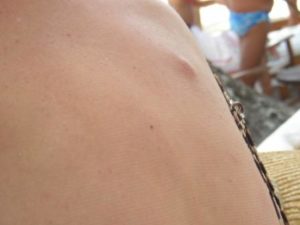
Antonia: Which is the reason why you lost a little bit of the strength in your voice.
Lindsay: That’s right. I can’t sing. I have no pitch in my voice. I can’t go up or down, it’s just like this.
Antonia: After the incident, how did you feel about still living in the DR? Did you feel like you wanted to go back to the UK or someplace where it was safer? What kept you there?
Lindsay: I never felt I wanted to leave. I mean friends from the DR who lived in heavily guarded gated communities were saying, “You have to come and stay with us.” I felt, no, this is my home and it won’t happen again. These things happen once and won’t happen again. It was a random act and this is my home. I’m going to stay. I mean, if you are in the hospital in England, you’ll have the odd visitor during visiting hours from 7:00 to 8:00 PM. The room will be full of flowers, everyone will send you flowers, everyone will send you cards, people will telephone.
The difference in DR was that I had no flowers, I had no cards. I had 400 people who came to see me.
It cost a fortune to get there. I was in the capital by now and it cost an awful lot of money for them to get there. They were going to a cathedral three or four hours away on the other side of the island where there’s a picture of the Virgin Mary and they were lighting a special candle for me. People were praying for my life. I had visitors 24/7.
Antonia: I think that’s priceless.
Lindsay: Yeah. I think it’s because the difference is that in England and other developed countries, nobody has time for anybody else. Your busy with work and it’s easy to say to your secretary, “please, use my credit card and send flowers to so an so,” “send a birthday card to so and so.” Whereas here, people take time out for each other.
The most important thing isn’t money and it isn’t your career. It’s the people around you.
Antonia: That’s so beautiful Lindsay. A couple of years later, your husband announced that he wanted to run for mayor. What sparked that interest? What was your reaction to it?
Lindsay: It was sparked because he started to get involved with politics at a local level a couple of years previously. The existing mayor in the area wasn’t doing a very good job. He and I were always helping people, him more than me really, with money or food. We would do dinner on Christmas Eve, where we would feed over 150 people. There was so much poverty and so much corruption and he just said, “The only way we could really make a difference is by doing it properly. If I’m mayor, we could do it.” I thought he was joking because we didn’t have loads of money, we didn’t have contacts. But, I said, “Well if you want to do it, do it.” I should have investigated what would be involved and how much it would cost but, there we go.
Antonia: Tell us a little about the campaign, it wasn’t anything like we know in Western Civilization. It didn’t go very smoothly, right?
Lindsay: NO! It’s very different, it’s 24/7. Your house turns into the party headquarters. There were hundreds of people at the house from 6:00 in the morning to 2:00 the following morning. There’s a lot of noise involved, music, cars and motor bikes. Lots of going around visiting people and shaking hands in the streets. Everything involves money; you have to pay for everything. The first thing that happened when we were up against the existing mayor, for the position to represent the same party, is that he wasn’t very happy about it. He had my husband arrested, we had accusations, and there were attempted murders. We had to keep escaping over the back of the house, hiding in the woods. I mean, it was just one thing after another. I just got more and more immune to the whole thing. I remember once, after one attempted murder, the car was full of bullet holes and smashed windscreen and the rocks and blood, I was told to get in the house and hide. There were men walking around with machine guns, jumping out of pillows, looking out the windows, making me hide under the bed. That’s what I did. It was like being in the middle of a movie set.
Antonia: Your husband was offered money to step down. He refused. Both of you could have stepped down, taken the money and put an end to all of it. Why did you refuse and continue going through it?
Lindsay: Because we had so many people who believed in us. All these people wanted him to win. We’re talking, thousands of people. The support was overwhelming. If we had just taken the money, it would have been a slap in the face to all these people who had been helping us and working with us.
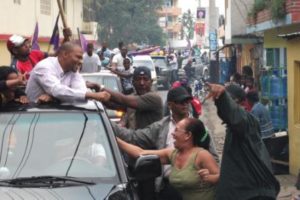
If we just did it to get a few million pesos, it would have been like it was all fake.
So, that was never an option, it was never a possibility.
Antonia: After the second campaign, Lindsay, you ended up losing everything. You lost the house, business, everything. You were actually living in total poverty. How was that for you? You came from having known what you knew in the UK to now living a complete different lifestyle.
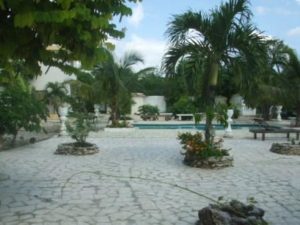
The house Lindsay lost during the election campaign
Lindsay: At the beginning, it was a relief to be safe and be out of everything. To be able to sleep in your bed and not waiting for someone to come banging on the window, no people with guns. I haven’t seen a gun since then. It was total relief and then it moved into desperation, I suppose. But, you just get on with it. The main thing that hit me was hunger. I had never been hungry before. You wake up at 2:00 or 3:00 in the morning, starving, hungry. That’s very hard.
When you have to eat porridge for three, four or five days just to get food in your stomach, you really understand what poverty is.
Suddenly, I found myself moving into a Dominican frame of mind. I would happily sit outside on a chair for hours and hours on end. There was nothing else to do. Chat to people to pass the time of day because there was nothing to do. You couldn’t go anywhere in a car, you couldn’t go anywhere on a bus because you didn’t have bus fare. You had nothing to eat, so you couldn’t eat. Just maybe a banana at lunch time with an egg and a bowl of porridge at night. One thing I never let go of was my computer and that’s when I really got into writing and blogging.
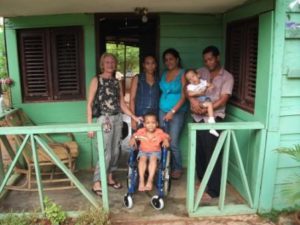
Antonia: Still, you stayed in the DR. At this point, did you ever feel you wanted to leave?
Lindsay: No. We were going fight. This was another faze. Something inside me said, “This is for a reason.” I knew that if I kept working really hard at writing, doing articles, we can get enough money. I had some fantastic friends. I mean, if I was really sick and couldn’t afford pills, my mother was unbelievable or other friends whom I have acknowledged in the book, would send 100 dollars. A HUNDRED DOLLARS! That was like a month’s money. It was like, OMG!!!! I would do exactly what the Dominicans do. I couldn’t suddenly save it and say, “OK, that’s five dollars today.” A HUNDRED DOLLARS! I was like, “WOW, let’s get something really nice!” Which is something I’ve never been able to understand before.
Antonia: Lindsay, what would you say is the most important life lesson you’ve learned from this experience?
Lindsay: Have Faith! I am not a massive religious person. Don’t get me wrong, I’m not saying God will look after you. But, as I say to some of the very religious Dominicans,
“God will only help those who help themselves.”
Don’t sit on your backside waiting for something to happen because it won’t. Just get on. Think, “What can I do?” Don’t feel sorry for yourself, just get on with it. I got on with my writing, I put myself out there, I send emails and slowly, slowly, we began to recuperate. When you’ve lost everything, I cannot tell you the pleasure when you have it back. When you go into the kitchen and stand in front of your fridge, it’s just a fridge. I now have a fridge again. I went three years with no fridge. Now, every time I stand in front of that fridge, I cannot tell you the incredible pleasure out of opening a fridge and seeing food inside it. It’s just like, WOW!
The pleasure of getting things back when you’ve had nothing, it’s worth having nothing for.
Antonia: You end up realizing, appreciating and be grateful for what you have. Sometimes, we don’t when we have always had them.
Lindsay: You can’t be if you’ve always had them. It’s impossible. I mean, you will eat a mushroom and say, “yeah, it’s a nice mushroom.” If I eat a mushroom now, I haven’t had a mushroom in two years because there aren’t any here, I cannot tell you the amazing, incredible pleasure I would feel from eating a mushroom.
So, it’s better not to have, because when you get it back again, it’s worth three years of hunger and poverty to be able to appreciate what we have now.
Antonia: What would say is the most important thing in life for you now?
Lindsay: The most important thing in life is to be happy. Which sounds very cliché but, you are in control of your own emotions.
Don’t let other people dictate to you how you think you should feel.
So, for example, if a man ends a relationship with a woman, she can’t say, “he did this to me” or “he did that to me.” No, he didn’t because you are in charge of what you want to make it feel. If you want to be unhappy and you’re feeling sad, allow yourself to do that. For twenty minutes, you don’t have to do it for three weeks. So, allow yourself to feel that emotion and say, “OK, I can feel that way if I want to but, if I don’t want to, I have the choice to go out there and look at a butterfly in the garden. Or, to read a book that I have been longing to read for ages. Or, to go and make some bread because I really fancy a nice piece of bread.”
You don’t have to feel miserable when everything around you is crushing down. It’s your choice.
Antonia: That’s so beautiful Lindsay. Thank you so much for sharing your story. Once again, your book really inspired me and I think everyone should read What About Your Saucepans?
Now, do you feel it’s time for a change but haven’t been able to admit what it is yet?
Have you stepped outside the ‘norms’ and pursue something you’ve always wanted?
What did you do? I’d love to hear from you in the comments.
Watch the interview with Lindsay de Feliz on YouTube

